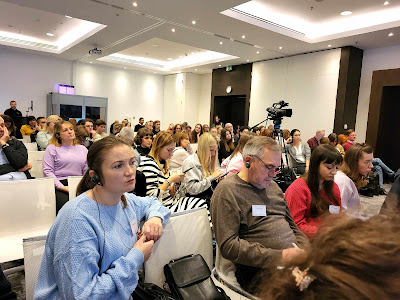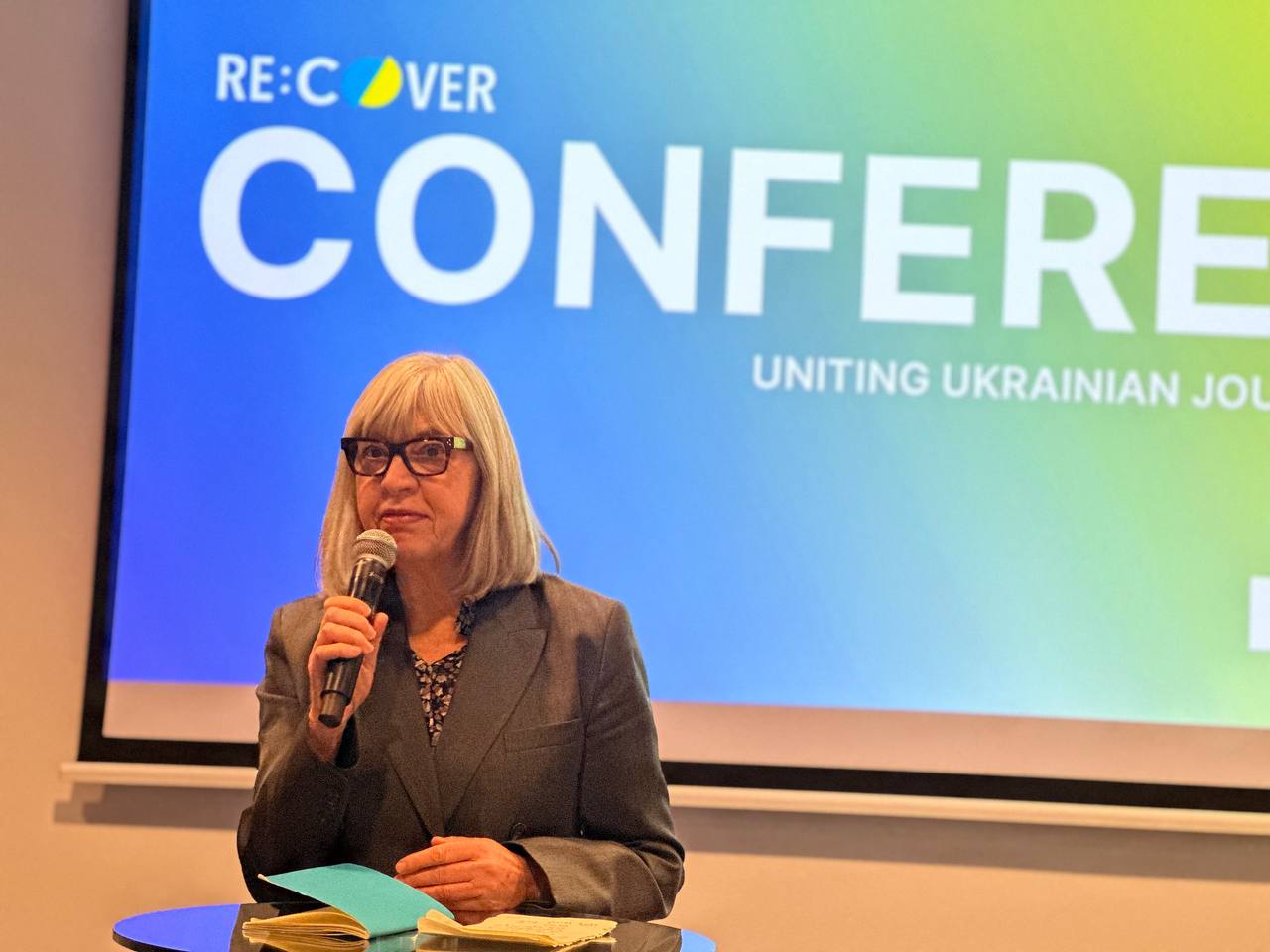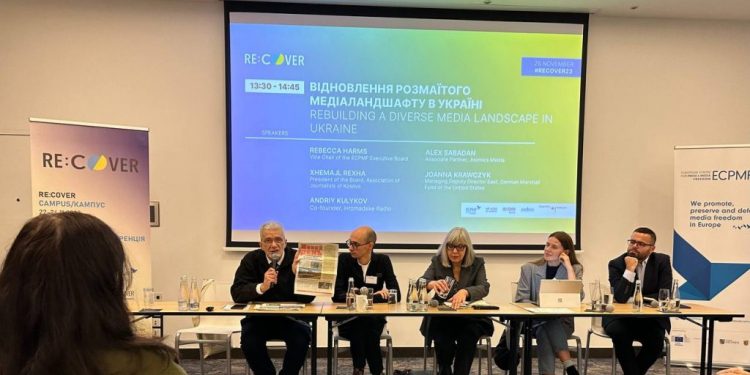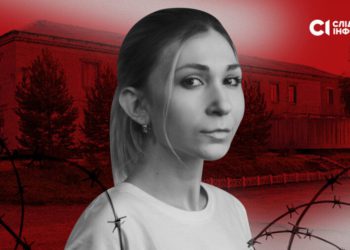Restoration of a diverse media landscape in Ukraine. It was the topic discussed this weekend at a press conference in Krakow (Poland). The event was called RE:COVER, part of the Voices of Ukraine program, financed by the German Ministry of Foreign Affairs. It is organized by the European Centre for Press and Media Freedom (ECPMF).
After the war ends, unique challenges and opportunities will arise; the media landscape will not be an exception. As soon as Ukraine emerges from the shadow of the war, it will face the vital and, at the same time, difficult task of rebuilding the media environment.
“It is an honor to work in a profession, but an honor only when we uphold the standards of the profession. I have the Novy Den and Volodymyretskyi Visnyk newspapers in my hands. And this is proof that nothing really disappears. Some said that everyone has gone “digital,” who needs those newspapers? But the Kharkiv, Sumy, and Chernihiv Regions after the de-occupation showed that this is not the case. As soon as the territories were liberated, newspapermen brought their newspapers to people. After de-occupation, people went online and finally found out what was happening in Kyiv, Warsaw, Tokyo, and Washington, but they didn’t know what was happening five kilometers away. And the local newspaper, radio, and television report this. Of course, fair market conditions and self-regulation are needed. And here, the National Union of Journalists of Ukraine (NUJU) can play an important role, which it currently plays in supporting the print media,” said Andrii Kulikov, a Ukrainian journalist, editor, radio host, TV presenter, media expert and media trainer.
He also emphasized that public broadcasting and public journalism are important in diversifying the media landscape. After all, Andrii Kulikov himself participated in the creation of public radio.
“When the first public radio stations appeared in Latin America, it was because the local miners wanted to be heard. They could not write, but they could speak. And those radio stations were even bombed to be destroyed them. I will not remind you what the russian invaders are doing. They also destroy the local mass media. Therefore, today, the public broadcaster in Ukraine is one of the pillars of the media landscape,” said Andrii Kulikov.
Alex Sabadan from Jnomics media consulting noted that there are state-owned, oligarchic, and independent media.
“Independent ones, of course, have the most challenges. These are both funds and access to information. And in this sense, for example, the state mass media have more opportunities to inform. First of all, this is a problem with talents. Media is not the richest sector, and there is a burnout effect. That is why people change professions. And this is a challenge faced by independent mass media. And the best help would be to give resources to independent media so that they can compete well with state-owned and oligarchic ones. And I would consider the need for help not through grants but through investments. Why is this important? Organizations should be heard to understand what they really need. For example, one organization bought a military sniper rifle. It was possible to find funds and buy it, but it would not be used as it had the wrong characteristics. Therefore, it is important here to give what is needed,” said Alex Sabadan.
 “As a donor community, we are constantly trying to monitor and update our knowledge of what is happening in Ukraine,” emphasized the head of the Gazeta Wyborcza Foundation, Joanna Krawczyk. “And we understand that reconstruction will not be cheap. But it is necessary to start now. We have to find more sustainable mechanisms to help the media. But helping the media and helping civil society are different things, different approaches. But everywhere, there are such factors as reporting and the fight against corruption. We must understand that our media support must be limited in time. The time frame with which we work is 5-10 years. Because if, after that, the whole ecosystem can only work depending on subsidies, it will be ineffective. As a donor organization, we believe that cooperation between Europe and the United States should be built. After all, the elections in the United States may later change Ukraine’s vision. Therefore, there should be a broader coalition here so that aid continues to flow.”
“As a donor community, we are constantly trying to monitor and update our knowledge of what is happening in Ukraine,” emphasized the head of the Gazeta Wyborcza Foundation, Joanna Krawczyk. “And we understand that reconstruction will not be cheap. But it is necessary to start now. We have to find more sustainable mechanisms to help the media. But helping the media and helping civil society are different things, different approaches. But everywhere, there are such factors as reporting and the fight against corruption. We must understand that our media support must be limited in time. The time frame with which we work is 5-10 years. Because if, after that, the whole ecosystem can only work depending on subsidies, it will be ineffective. As a donor organization, we believe that cooperation between Europe and the United States should be built. After all, the elections in the United States may later change Ukraine’s vision. Therefore, there should be a broader coalition here so that aid continues to flow.”
Rebecca Harms, a German politician and documentary filmmaker who opened the conference on Saturday noted that local media should be supported today because they often control the very issues of accountability and corruption that Ms. Johanna spoke about.

Nazarii Vivcharyk, Krakow

 THE NATIONAL UNION OF
JOURNALISTS OF UKRAINE
THE NATIONAL UNION OF
JOURNALISTS OF UKRAINE
















Discussion about this post